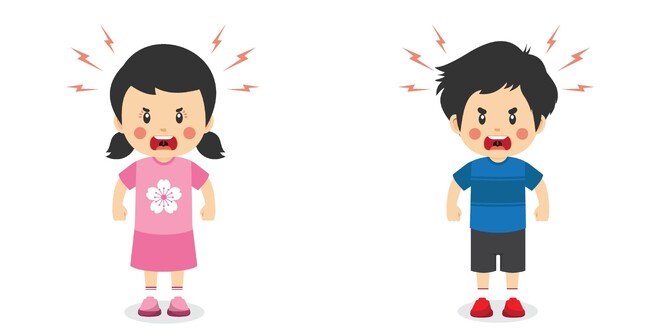Woof!
Womble the Therapy Dog Here!
Hey there, pawsome parent! It's me, Womble, your friendly therapy dog. I'm here to help with some top tips to keep your little pup calm and happy. Let's dive into it, arf arf!
Stay Calm and Cool 😌
When your child gets angry, it's super important for you to stay calm. Dogs like me can sense emotions, and kids can too! Take deep breaths and speak softly. Your calmness can help soothe their storm.
Create a Safe Space 🏡
Make a cozy spot where your child can go when they're feeling mad. Fill it with their favourite things, like soft pillows, toys, and maybe a picture of their favourite furry friend (like me!).
Some times familiar smells and scents can also be helpful, and other sensory items can be helpful.
For teens, safe spaces may need to look different and it's worth discussing where would be a safe space for them if they needed one when feeling angry. It may be, space elsewhere, like a walk round the area. I LOVE A WALK!
Teach Them to Woof Out Their Feelings 🗣️
Encourage your child to talk about what they feel like when they're angry. You can try asking why they're angry, but if they don't know, or don't want to share, let's focus on what we can discuss first.
Just like how I bark to communicate, kids and teens need to express their feelings too. Ask gentle questions and listen with your heart. We grow out of these things eventually in most cases, but we may learn something about why if we listen first before trying to change a behaviour of feeling.
Show Them Healthy Ways to Let It Out
Help your child find safe ways to release their anger. Adult humans often don't want physical lashing out from children I think, and it shouldn't be introduced if they don't don't do it already. But we may need to start with what we can lash out towards safely as a baby step when improving on more heightened unsafe behaviours. It can be a helpful stepping stone while we attempt to understand and learn how best to prevent these moments in the first place as these things can take time.
I have destroyed a teddy or two as a pup... But now I love to cuddle with them when I have big feelings instead, so most pups can learn new ways of managing big feelings and frustrations! Maybe children hitting a pillow, stomp their feet, or even running around outside for a bit at first while trying to address the causes together isn't the end of the world. Physical activities can help them feel better as a starting point. Aggression is a normal part of development, so lets understand where it comes from, and what we can do with it. And eventually, they'll begin to use words instead of acting out to communicate.
The best way to avoid the angry acting out however, is to model what you hope to see with them and around them. If you think they're getting angry, mention it. "Is this making you feel unhappy/angry"? "It seems we might be getting frustrated"?. If children know you recognise their feelings before they become overwhelming, that may be enough for them to feel understood, start thinking how to handle it and be able to identify with themselves when somethings not right.
Practice Calm Down Tricks 🧘♀️
Teach your child some cool-down techniques. Deep breathing, counting, or imagining they're in a peaceful place can work wonders. Sometimes, a little belly rub (or hug) can make a big difference!
You could try using calming/mindfulness apps on their phones for them to explore independently or together?
Reward the Good Behaviour 🎉
When your child handles their anger well, give them lots of praise, praise alone can feel like a treat (just like I get for being a good dog!). Positive reinforcement helps them know they're doing a great job.
I don't know many teens who admit they like to be praised in the same way... But they probably like it still really, so don't be afraid to point out the positives.
Be a Role Model 🌟
Kids look up to their parents and adults of importance to them generally. Show them how you handle your own anger in a healthy way. If they see you staying calm and collected, they'll learn to do the same.
Remember, you're not alone in this. Even the best pups have their rough days. With a little patience and lots of love, your child can learn to manage their anger better. Woof woof!
Love and tail wags, Womble the Therapy Dog 🐶❤️
P.S. Don't forget to give yourself a treat too! You're doing a great job.
Do you want to link our blogs to your school or organisational website?
This Newsletter and Blog is for the general public domain. All we ask is you request our logo to use on your site if wanted, and reference the blog link/page.


